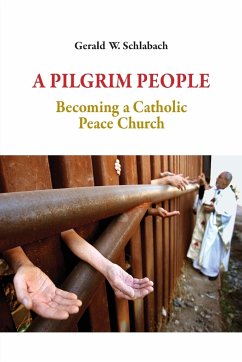Recent decades have seen a steady trend in Roman Catholic teaching toward a commitment to active nonviolence that could qualify the church as a "peace church." As a moral theologian specializing in social ethics, Schlabach explores how this trend in Catholic social teaching will need to take shape if Catholics are to follow through. Globalization, he argues, is an invitation to recognize what was always supposed to be true in Catholic ecclesiology: Christ gives Christians an identity that crosses borders. To become a truly catholic global peace church in which peacemaking is church-wide and parish-deep, Catholics should recognize that they have always properly been a diaspora people with an identity that transcends tribe and nation-state.








